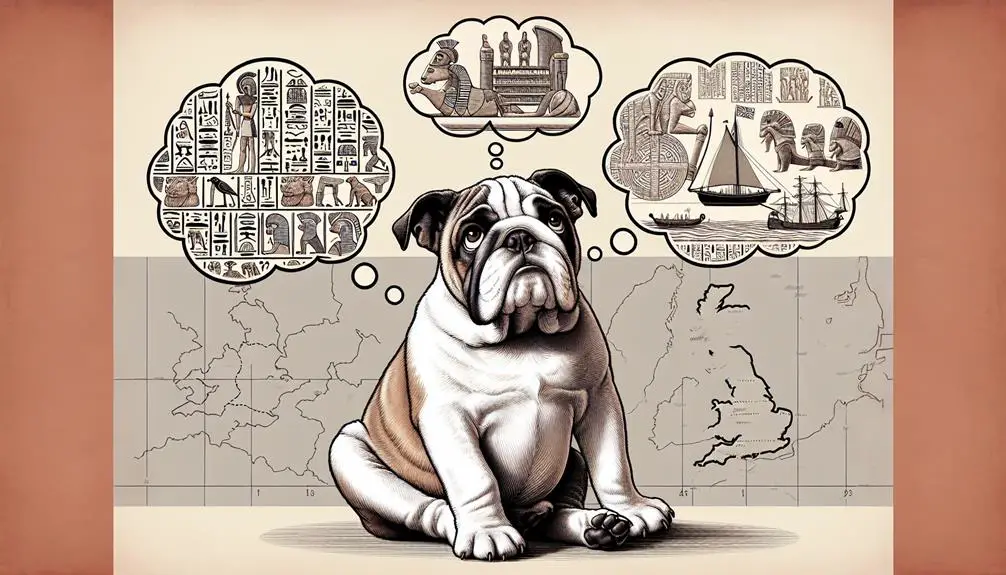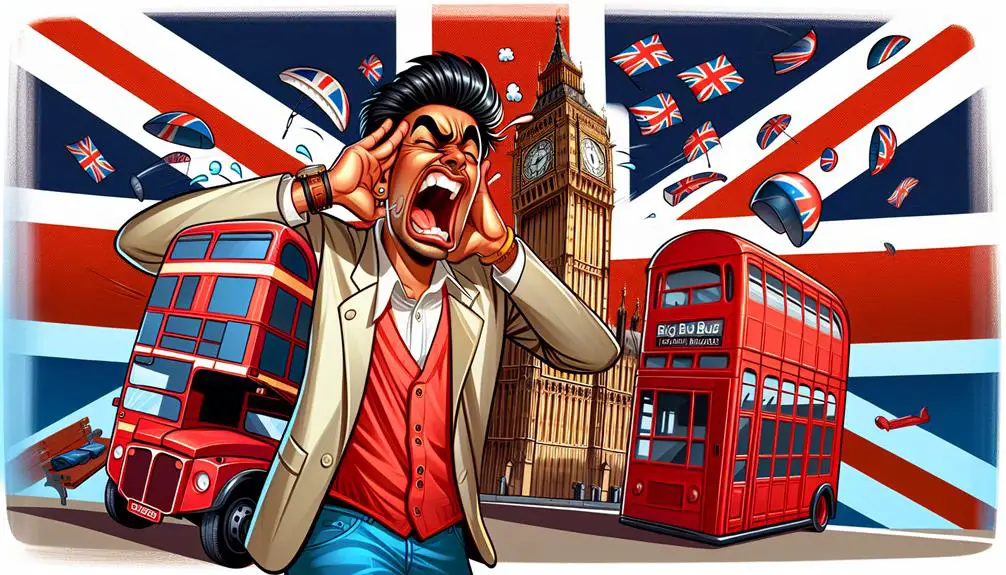In your conversations, texts, and social media scrolls, you've encountered 'kmt' more than once, but its meaning, context, and origins may still elude you.
This British slang, shorthand for an expression of disdain or irritation, has woven itself into the fabric of contemporary communication, yet its roots and the nuances of its usage remain a mystery to many.
As you explore the layers behind 'kmt,' from its acronym to its cultural impact, you'll uncover how a simple expression can reflect broader societal attitudes and the ever-evolving landscape of language.
So, what deeper insights might 'kmt' reveal about British slang and its influence on global communication?
Origins of Kmt

The term 'Kmt,' deeply rooted in British slang, originated from the Caribbean community in the UK, reflecting a rich linguistic blend of cultural expressions. This term stands as a testament to the vibrant, complex tapestry of language that evolves when different cultures intersect, particularly within the dynamic, multicultural landscapes of Britain's urban centers. You'll find that 'Kmt' isn't just a random collection of letters; it's a linguistic artifact, a symbol of cultural fusion and identity.
Delving deeper, you'll recognize that the Caribbean influence on British slang isn't incidental. It's the result of significant migration waves from the Caribbean to the UK, especially during the mid-20th century. This period, often referred to as the Windrush era, saw thousands of Caribbean people move to Britain, bringing with them a rich cultural heritage, including distinct linguistic elements. These elements didn't just integrate into the existing British lexicon; they transformed it, introducing new words, phrases, and expressions, among which 'Kmt' is a prominent example.
Analyzing the origins of 'Kmt' further, you'd appreciate how it encapsulates the essence of cultural exchange and adaptation. It's a vivid illustration of how language evolves, borrowing and adapting from different sources to create something new and uniquely expressive. This term isn't static; it's part of a living, breathing linguistic evolution that continues to shape the way communities in the UK communicate, express displeasure, and assert their identity.
In essence, 'Kmt' is more than slang; it's a linguistic bridge between cultures, a marker of identity, and a product of historical migration and settlement patterns. Understanding its origins offers a glimpse into the complex, intertwined narratives that contribute to the rich fabric of British society.
Decoding the Acronym
Unpacking 'Kmt,' you'll discover it's not just any acronym; it's a rich tapestry of meaning and history deeply embedded in British slang. As you delve into its layers, you gain insight into not only the language but also the culture and attitudes it reflects. Here are four key aspects to understand about 'Kmt':
- Origins: 'Kmt' traces its roots back to the Caribbean, particularly Jamaica, before it found its way into British slang. This migration of language reflects the broader patterns of immigration and cultural exchange, highlighting the dynamic nature of language evolution.
- Phonetic Basis: At its core, 'Kmt' is an onomatopoeic representation of the sound made by sucking teeth or a kiss-teeth sound, a gesture that conveys a mixture of disapproval, disdain, or annoyance. This phonetic basis links 'Kmt' to the emotions it's intended to express, making it a potent linguistic tool.
- Cultural Significance: Understanding 'Kmt' requires more than just a literal translation. It's a window into the ways emotions are expressed and communicated within different cultures, particularly within the African-Caribbean community in the UK. This cultural significance adds layers of meaning to the acronym, enriching its use in conversation.
- Linguistic Versatility: While 'Kmt' started with a specific emotional connotation, its usage has expanded. It serves as a versatile linguistic tool, adapting to various contexts while maintaining its core expression of emotion. This adaptability is a testament to the fluid nature of language, especially within vibrant multicultural urban centers.
Common Usage and Contexts

Understanding 'Kmt' provides insight into its rich cultural background, and now we'll explore how it's commonly used and the various contexts in which it appears. Originating from the Caribbean and solidified in British slang, 'Kmt' stands for 'kiss my teeth,' a non-verbal expression of annoyance, disdain, or disapproval. You'll find it woven into the fabric of conversations both online and in person, serving as a powerful tool to convey emotions without the need for elaborate explanations.
In digital communication, 'Kmt' punctuates text messages, tweets, and social media comments, embodying the speaker's frustration or irritation succinctly. It's a quick, effective way to express feelings, especially in fast-paced online interactions where brevity is valued. The prevalence of 'Kmt' in digital discourse highlights its adaptability and the way language evolves in response to technological changes.
Face-to-face, the physical act of kissing one's teeth accompanies the verbal or typed 'Kmt,' adding another layer of meaning through non-verbal cues. This gesture is deeply rooted in cultural expressions of emotion, transcending language barriers. It's particularly common among younger generations in urban areas, symbolizing a shared linguistic identity that ties back to their heritage.
In the realms of music, especially genres like grime and UK rap, 'Kmt' becomes a lyrical tool, used by artists to express frustration or critique societal issues. This context showcases its versatility and how it can carry significant weight in conveying messages within a cultural context.
Analyzing 'Kmt's' common usage and contexts reveals its role as a linguistic and cultural marker, reflecting broader themes of identity, technology, and expression.
Variations and Similar Expressions
Exploring 'Kmt' reveals a tapestry of similar expressions and variations that enrich the landscape of British slang, each carrying its own shade of meaning and cultural nuance. As you delve deeper, you'll discover how these expressions vary in use, reflecting different emotions, contexts, or intensity levels. Here's an analytical look at four notable variations:
- Sigh – A universal expression of disappointment or exasperation, a sigh often accompanies or is implied by 'kmt'. While 'kmt' specifically implies a sound, a sigh might be more subdued or socially acceptable in certain settings. It's the subtlety in the sigh that differentiates it from the more explicit annoyance or frustration suggested by 'kmt'.
- Eye roll – This non-verbal expression serves a similar function to 'kmt', conveying disbelief, annoyance, or impatience without words. It's a global gesture, but within the British context, it complements the verbal expressions, adding a layer of unspoken communication that underscores the sentiment behind 'kmt'.
- 'Whatever' – This verbal shrug is less about the sound and more about dismissing whatever has caused annoyance. It's a linguistic equivalent to 'kmt' that serves to end a conversation or indicate indifference. While 'kmt' might be more about expressing frustration, 'whatever' puts a lid on the conversation, signaling a desire to move on.
- 'I can't even' – A phrase that captures a sense of being so overwhelmed or annoyed that one can't articulate their feelings fully. It shares similarities with 'kmt' by expressing a strong emotional reaction, yet it's more about the speaker's inability to deal with the situation than the annoyance alone.
Each of these expressions adds depth to the rich tapestry of British slang, providing nuanced ways to communicate feelings of irritation, disbelief, or exasperation.
Cultural Impact and Evolution

The cultural landscape of British slang, particularly through expressions like 'kmt', reflects its dynamic evolution and significant influence on communication within diverse communities. You've likely noticed how slang terms, once confined to specific regions or groups, now permeate the broader culture, morphing in meaning and usage over time. 'Kmt', originating from the Caribbean diaspora, is a prime example of this linguistic journey, showcasing the fluid nature of language and its ability to cross cultural boundaries.
To understand the profound impact of 'kmt', consider its role in three key areas:
| Area | Impact of 'Kmt' | Cultural Significance |
|---|---|---|
| Communication | Facilitates informal, expressive dialogue | Bridges generational and cultural gaps |
| Identity | Serves as a marker of cultural or group affiliation | Reflects the multi-ethnic makeup of modern Britain |
| Media & Entertainment | Popularized through music, TV, and social media | Amplifies the visibility of diverse British cultures |
Through its widespread adoption, 'kmt' has become a vehicle for expressing frustration or disdain in a succinct, powerful manner. Its usage goes beyond mere words, encapsulating feelings and attitudes that resonate with a broad audience. This evolution mirrors the changing demographics and cultural fabric of Britain, where slang not only adapts to, but also celebrates, the richness of its diverse population.
As you navigate the vibrant world of British slang, it's important to recognize the role expressions like 'kmt' play in shaping our understanding of language as a living, evolving entity. Their journey from niche to mainstream underscores the transformative power of words to connect, define, and enrich our lives.
Frequently Asked Questions
How Does the Usage of "Kmt" in British Slang Differ Across Various Age Groups Within the Uk?
You'll find that younger generations in the UK use 'kmt' more frequently and casually in texts and social media, while older age groups might not use or understand it as much, reflecting generational slang evolution.
Are There Any Documented Cases Where the Use of "Kmt" in Communication Has Led to Misunderstandings or Conflicts in Professional Settings?
Yes, there've been instances where 'kmt' has caused confusion or conflict in professional settings, often due to varying interpretations of its tone or intent, highlighting the importance of clear communication in diverse work environments.
What Is the Stance of Educational Institutions in the UK Regarding the Inclusion of Slang Terms Like "Kmt" in Academic Submissions or Formal Writing?
You'll find that most UK educational institutions frown upon the use of slang in academic submissions. They prioritize standard English to maintain formality and clarity in written communication, steering clear of informal expressions like 'kmt'.
How Do Non-Native English Speakers Residing in the UK Perceive and Adapt to the Use of "Kmt" and Other British Slang in Everyday Conversation?
You might find adapting to British slang challenging but rewarding. It's about immersing yourself in the culture and understanding the nuances. With time, you'll pick up phrases like 'kmt' and use them naturally in conversation.
Has the Digital Era and the Rise of Social Media Platforms Influenced the Spelling or Phonetic Variations of "Kmt" in Online Communication Among British Users?
You've noticed the digital age and social media's impact on communication, particularly how they've possibly changed 'kmt' usage among British users online. It's fascinating to see if spelling or phonetic variations have emerged.
Conclusion
So, you've dived deep into the world of 'kmt,' decoding its origins, dissecting its usage, and even exploring its cultural ripples. You're now practically a linguist, armed with the power to suck your teeth in the most authentically British way possible.
Remember, wielding 'kmt' isn't just about expressing disdain; it's about embracing a rich tapestry of linguistic rebellion. Use it wisely, or at least, use it to mystify your friends who are still stuck saying 'LOL.'
It's an art form that, when mastered, can convey a spectrum of emotions, from mild annoyance to profound disbelief, all without uttering a single complete sentence.







